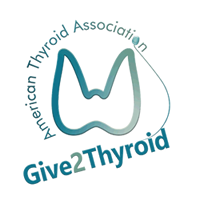BACKGROUND
Hypothyroidism is common, affecting up to 5% of people in the United States, with mild hypothyroidism affecting up to 20% of selected populations. Many of the symptoms of hypothyroidism are nonspecific and hard to quantify. The thyroid gland is controlled by thyroid stimulating hormone (TSH) secreted by the pituitary gland. TSH levels increase when the thyroid hormone levels fall in the patient who develops hypothyroidism. Treatment of hypothyroidism involves replacing the thyroid hormones, usually in the form of levothyroxine (L-T4).
Some of the objective signs in hypothyroidism include increases in the level of cholesterol, both total and LDL cholesterol. Decreases in brain function and energy expenditure are also seen. These changes all should be reverse during treatment with L-T4, with a goal of therapy decreasing TSH levels back to the normal range. Once the TSH is normal, cholesterol and creatine kinase levels, brain function and energy expenditure should also return to normal. The objective of this study was to determine if normalization of TSH in patients with hypothyroidism treated with L-T4 led to normalization of these thyroid hormone therapy markers. In this study, previously published data on that topic was systematically reviewed, combined and analyzed together.
THE FULL ARTICLE TITLE:
McAninch EA et al. Systemic Thyroid Hormone Status During Levothyroxine Therapy In Hypothyroidism: A Systematic Review and Meta-Analysis. J Clin Endocrinol Metab. 2018 Aug 15. doi: 10.1210/jc.2018-01361




